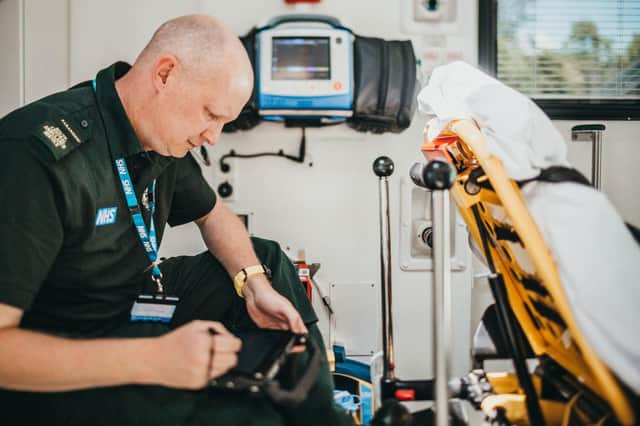Banbury paramedics will receive new equipment to help dementia patients


The new innovation will see a special dementia button added to paramedics' electronic devices and aims to ensure that more people will receive the care they need when arriving at emergency departments or when requiring other health and social care services.
It forms part of a new £40,000 project being delivered by South Central Ambulance Service NHS Foundation Trust (SCAS), which covers Banbury, in partnership with the Universities of Portsmouth and Southampton and is funded by The Health Foundation Q Exchange programme to improve care for older people.
Advertisement
Hide AdAdvertisement
Hide AdDementia can impact all aspects of a patient's care, which means it is important that all staff are aware of a confirmed or suspected case. Currently, when paramedics record a patient's healthcare information on their electronic patient record (ePR) there is no dedicated place to record dementia.
As paramedics may be treating a patient for an injury or illness unrelated to dementia, the variety of places a dementia diagnosis can be listed within the ePR means it can often be missed by subsequent healthcare providers reviewing the patient's notes.
In collaboration with the two Hampshire universities, SCAS surveyed ambulance clinical staff on the subject and received overwhelming support for a designated button that would enable a quick and clear way of recording cases of dementia.
Senior research paramedic at SCAS, Helen Pocock, said: “Older people have a high usage of emergency ambulance services and dementia is a common condition affecting older people who use health services, impacting on all aspects of their care.
Advertisement
Hide AdAdvertisement
Hide Ad"We found that dementia could have been recorded in 16 different text fields on the electronic patient record, making it difficult for accurate data retrieval by other staff referring to the record and potentially meaning those patients do not receive the tailored onward care they need.”
Dr. Carole Fogg, a senior research fellow at the University of Southampton, said: "It is well documented that people with dementia have poorer outcomes in hospital, so this innovation has the potential to enable them to receive the most appropriate care from emergency departments at the point of arrival or from referral services such as social care."
For more information, visit https://q.health.org.uk/idea/2022/install-and-evaluate-dementia-button-on-ambulance-electronic-patient-record/